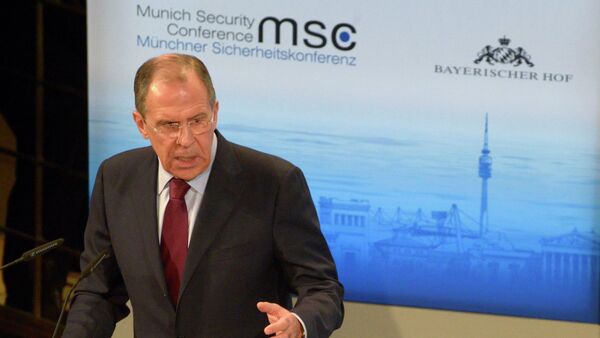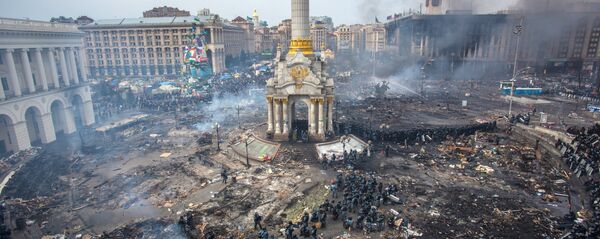"On the main day of the conference – February 7 – we will be dealing with the issue of European security almost exclusively, thus addressing the topic of the Ukrainian conflict. There will be a lot of time for discussions between nearly 400 participants," Wolfgang Ischinger said.
According to Ischinger, Lavrov, Merkel and Biden are expected to give speeches on the situation in Ukraine.
"On the same day [February 7] we will have a major discussion among presidents of European nations, including Ukrainian President [Petro Poroshenko], Finnish President [Sauli Niinisto], Bulgarian President [Rosen Plevneliev]," Ischinger said.
According to the Munich Security Conference chairman, there will also be time for closed-door meetings. The conference will be attended by around 20 government leaders, 60 foreign and defense ministers.
"I am sure that these opportunities will be actively used to find ways of de-escalating the crisis [in Ukraine] and finding a way out of the complicated situation," Ischinger said, adding that these talks should be held "not for the promotion of Russian or Western interests," but for the people of Ukraine who have suffered as a result of the crisis.
According to the latest UN estimates, about 5,000 were killed in fighting between Kiev forces and independence supporters in the country's southeastern regions. More than one million have fled Ukraine for Russia and other countries. More than 4,000 Ukrainians have applied for asylum in EU countries, with Poland, Germany and Sweden having received the highest number of applications in the European Union.
On January 16, the World Health Organization (WHO) announced that some 1.4 million people remaining in eastern Ukraine require humanitarian assistance amid the destruction of health care facilities and lack of medical assistance.
Ukraine's eastern regions of Donetsk and Luhansk have been suffering from a severe humanitarian crisis as a result of a military operation launched by Kiev against local independence supporters in mid-April, 2014.
Although the warring sides reached a ceasefire agreement at a meeting of the Contact Group on Ukraine in Minsk in September, fighting in the South-East goes on and has intensified over the past month. A new Contact Group meeting held in Minsk on Friday did not yield any agreements.


